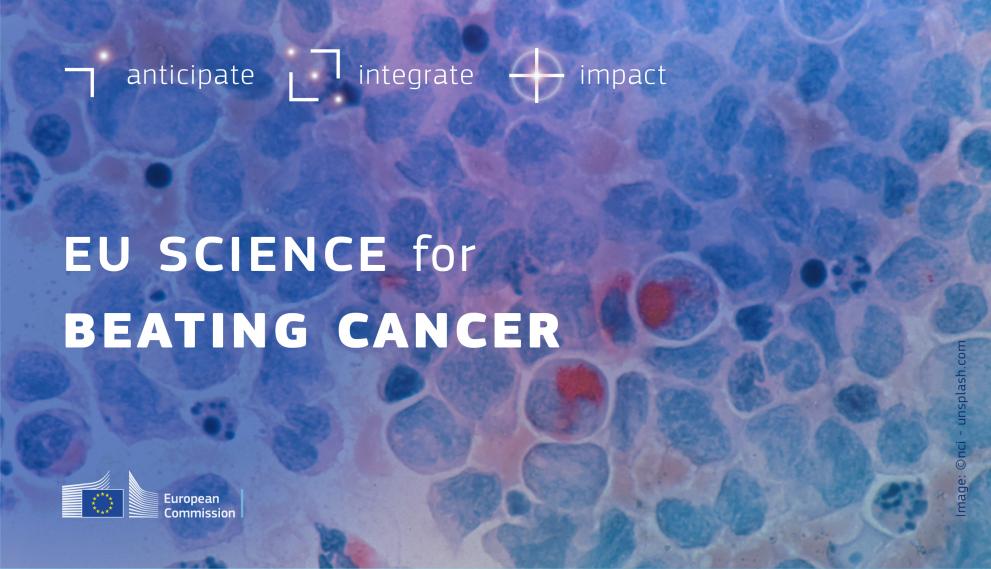
When we visit the doctor to get tests done, we may be nervous about the lab results but we tend not to worry about whether or not they are accurate.
From regular check-ups to more serious diseases like cancer, we can trust these tests thanks to cooperation between leading experts like Joanna Sheldon and Yoshihisa Itoh.
Joanna is a British consultant immunologist at a lab running tests to diagnose and monitor disease, and Yoshihisa is a Japanese expert with over forty years’ experience in clinical protein chemistry.
Joanna and Yoshihisa team up with the Joint Research Centre and other scientists to make sure tests are reliable, wherever in the world they happen.
As part of the International Federation of Clinical Chemistry and Laboratory Medicine (IFCC) committee on plasma proteins, they work together to develop human serum reference materials to ‘test the tests’.
“The more precise and accurate the better”, Yoshihisa says. “We always want to pursue this”.
A reference material for accurate blood tests
The JRC produces several serum-based materials at its certified reference materials laboratory in Geel, Belgium.
One of these is the serum ERM-DA470k. Developed together with the IFCC protein committee, diagnostic companies use ERM-DA470k to make sure that their blood tests work properly.
“Our task was to work with the JRC to make a new lot of ERM-DA470k. I participated in the analyses of the material and value assignment protocols”, Joanna explains.
Clinical laboratories like Joanna’s use the blood tests to determine levels of specific proteins like immunoglobulins and ‘beta-2-microglobulin’ – known as B2M – in patients with certain types of bone marrow or blood cancers.
The results on the immunoglobulin tests are important for the diagnosis of blood cancers, while B2M is an important factor in disease prognosis. High levels of B2M in the blood suggest more aggressive forms of cancer.
Joanna and her lab do about 80 of these kinds of tests every day. “ERM-DA470k is vital to maintaining high quality in the measurement of plasma proteins across the world”, Joanna says. “Doctors use our analysis of the B2M concentration to assess the patient’s prognosis and determine whether and how they will be treated”.
Yoshihisa has been studying proteins since before the completion of CRM470 in 1990, the precursor to ERM-DA470k. His research led him into a career in test standardisation with reference materials for various proteins.
“One of our aims is to make better use of ERM-DA470k to standardise the measurement of serum proteins in Japan”, says Yoshihisa. “Introduction of the material has led to setting reference intervals of Japanese and other Asian populations of key proteins”.
ERM-DA 470k is in high demand: the JRC has distributed 18000 units of the serum since 2008, which have been shipped to the manufacturers of diagnostic tests in 45 countries. These tests are applied by hospital and medical laboratories for the testing of cancer patients across Europe and around the world.
For Joanna, ERM-DA470k is a welcome improvement on what was there before as it can be used with the latest available test methods and laboratory equipment. “The previous materials were turbid, so not suitable for the nephelometric and turbidimetric assays that are now central to the quantification of plasma proteins”, she says.
For Yoshihisa, ERM-DA470k can act as a “lighthouse for various serum protein standardisation. It will be further used for new protein components of high clinical significance that will emerge in the future”.
Continuing the collaboration
Since helping to develop ERM-DA470k, Joanna has continued to work with the JRC to make other materials, including for tests associated with vasculitis – diseases that cause inflammation of the blood vessels. “I find working with the JRC incredibly rewarding”, she says. “The colleagues within the JRC are knowledgeable and have enormous understanding of standard production and assessment”.
Yoshihisa recognises that continued global cooperation is key, especially as there are a limited number of people specialised in both clinical protein chemistry and test standardisation.
As he nears retirement, Yoshihisa has lined up a fellow expert in Japan to continue the work promoting international protein standardisation together with the JRC and others. “International continuity is power”, he says.
Background
The measurement of biomarkers, mainly in blood, is performed in many thousands of hospital laboratories. The results are used to monitor health status, screen for cancer and other diseases, support diagnosis, and monitor the effect of treatments.
However, measuring biomarkers reliably is not straightforward. The results can be influenced by factors like the calibration of the instrument used, chemical instability or our ‘genotype’ – the genetic traits we inherit from our parents.
Without developing common standards that take account of these factors, it is impossible to compare test results obtained at different hospitals or even the same hospital over a period of time.
The JRC helps to achieve this standardisation by providing reference materials like ERM-DA470k, and by developing methods with partners in the EU and further afield.
In the EU, the need for standardisation and traceability is laid out in the EU Directive on in vitro diagnostic medical devices (IVD-MD). European in vitro diagnostics manufacturers in the EU make use of the JRC’s standardisation tools in order comply with the requirements of the Directive.
The IFCC is a global non-political organization for clinical chemistry and laboratory medicine. It has several roles including global standard setting in collaboration with other international organisations and helping laboratory medicine specialists to meet and share findings and good practices.
Sources
Details
- Publication date
- 4 February 2022
- Author
- Joint Research Centre
